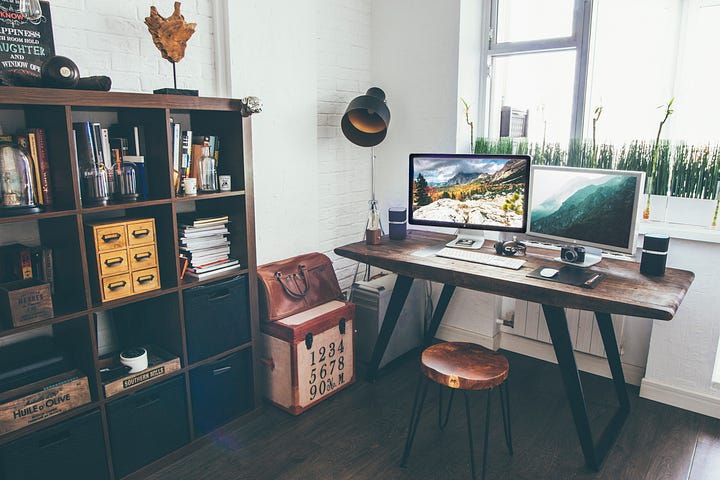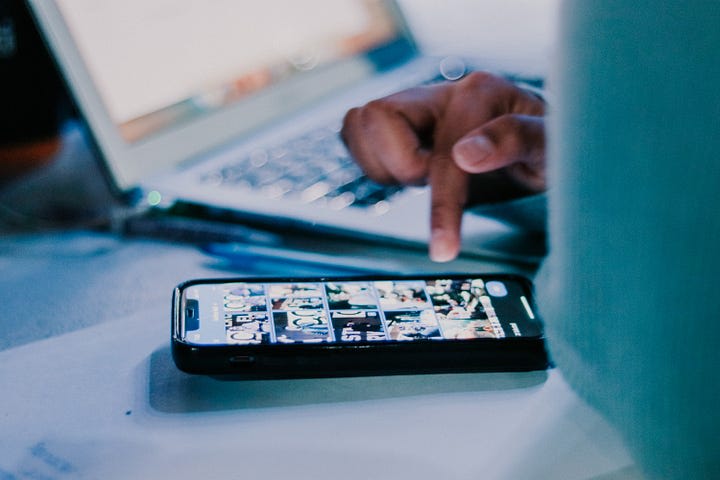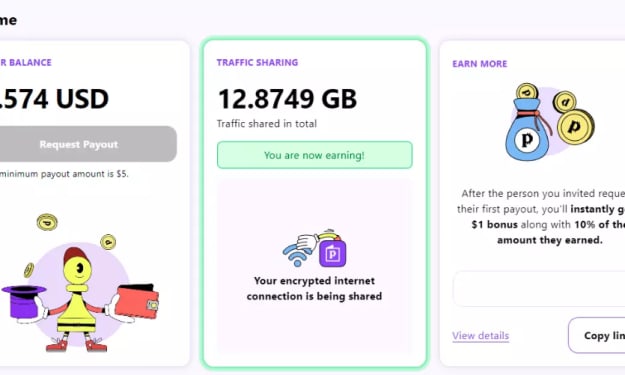
Alone in the cave, staring at the laptop, hour after hour the time ticks by, excruciatingly. By the end of the day, you feel drained from all the stress, and you realize- you never once left your house. Oops.
It’s 5:30 pm, time to drink a glass of wine, consume your daily dose of YouTube, go to bed, wake up, and do it again. Every day feels like a drag, and you are about ready to give up this exhausting routine.
“How much longer can I live like this?”
If this is your work day on repeat, you are setting yourself up for decreased productivity, negative health consequences from the stress, and maybe even a couple emotional breakdowns here and there. It has happened to me more than once, and you aren’t immune to it either.
If you don’t take precautions against burnout proactively, before you know it, your health will suffer, and so will your job.
Try out the following tips that have helped me to avoid remote work depression after almost two years of work-from-home experience.
1. Dress in work appropriate clothing.

You aren’t going into the office, so you don’t have to dress in office clothes. Awesome, right? When I was first told that my work was going remote, I immediately thought how great it would be to work in my pajamas while sitting in bed and eating cheez-its.
Unfortunately, once this became a reality, I realized that dressing like a gremlin had some negative consequences on my work, productivity, and mood.
Getting dressed for work sets your tone for the day, so even when you are working remotely, your clothing will still have an effect on how you feel. Dressing in office appropriate clothes can help you feel more professional, alert, and cue your brain that you are now in “work mode”. Staying in your pajamas can have the opposite effect, and it did for me.
“Staying in PJs all day has some negative connotations associated with it and therefore if we behave that way, we can start to feel lazy and unmotivated which in turn leads to a lack of productivity and low activity levels.” — Working from home? Here’s why getting dressed is more important than you think
Before I was working from home, I went into the office every day. I woke up at 7 am, got dressed, did my makeup, and fixed my hair. Once I got on the bus, I blasted music in my air pods while drinking my first coffee of the day. I would look out of the bus windows at the skyscrapers of downtown San Francisco until I got to my stop. By the time I got to work, I was inspired, awake, and ready to work.
Fast forward to working from home- I would wake up 20 minutes before 9 am without any time to change, jump on my laptop, and get going. Little did I know, I had dropped the routine that cued my brain to be ready for work, and getting dressed was a vital part of that routine that separated work life, from home life.
Eventually, I realized that maintaining my normal morning routine of getting dressed before starting work was extremely important and had a huge impact on my day.
As an experiment, try dressing as if you are still going to go to the office every day, or at least change into something that is still work appropriate. (This doesn’t include your super ninja turtle pajama pants or your old college sweatshirt!) After a week, see if there was any difference in the way you feel.
2. Get sunlight.

Staying inside day after day is much too easy of a habit to fall into when working from home, so don’t! Get outside in the morning or during your break, get your Spotify playlist going, and inhale some fresh air.
Before working remotely, I took a bus to and from work. This daily commute forced me to walk outside and get sunlight every day before work. On my lunch break I would always go outside for a walk to recharge. I didn’t realize that getting outside and getting sun exposure every day was a huge factor in my mental health and my work productivity.
When I began to spend all day inside while working from home, I didn’t have a reason to venture outside. Working from home means that you will have to motivate yourself to get outside every day.
When you get outside, your body absorbs vitamin D from the sun, which helps to fight depression. Exposure to sunlight in the morning regulates circadian rhythms, making sleep patterns more regular, and your sleep quality better.
Even if you can’t get outside, make sure that you have some natural sunlight coming into the room you are working in. Reduced sunlight can cause a drop in serotonin that can trigger depression, and a drastic reduction in sunlight can contribute to seasonal affective disorder, which is when the season of the year causes depression, often caused by lack of sunlight usually in the winter months.
Taking daily walks will not only help you get sunlight, but also allows you to reap these psychological benefits of exercise:
- Exercise can treat mild to moderate depression as effectively as antidepressant medication.
- Exercise is a natural and effective anti-anxiety treatment.
- Exercising regularly is one of the easiest and most effective ways to reduce the symptoms of ADHD and improve concentration, motivation, memory, and mood.
- Evidence suggests that by really focusing on your body and how it feels as you exercise, you can help your nervous system become “unstuck” and begin to move out of the immobilization stress response that characterizes PTSD or trauma.
- Other emotional benefits of exercise include sharper memory and thinking, higher self-esteem, better sleep, more energy, and stronger resilience to mental and emotional challenges in life.
-The Mental Health Benefits of Exercise
Try setting alarms to remind yourself to get sunlight every day. I suggest waking up a bit early to step outside, and then setting an alarm at noon, or when your normal lunch break is. You will be glad you did.
3. Set up a tidy and organized work space

Physical clutter can cause underlying stress which can make your work day more stressful. Your work space shouldn’t feel like something you are trapped in, but rather a place to be productive in.
If you have a cluttered area, you will constantly be distracted by the mess around you, reminding your brain that you have a non-stop list of things to do.
“Clutter bombards our minds with excessive stimuli (visual, olfactory, tactile), causing our senses to work overtime on stimuli that aren’t necessary or important.” —Why Mess Causes Stress
Working in a messy environment was a major subconscious factor to my work from home depression. Already being busy with multiple assignments and meetings was stressful enough, but having a messy room around me in the midst of work pressure made focusing impossible and only exacerbated my existing stress.
Once I realized this, I made sure that my environment was tidy before I worked. Ever since I started prioritizing this, I’ve felt much more relaxed and happy while working at home.
Here are some things I’ve learned to prioritize for my work space:
- Sit at a desk. I know, it is tempting to sit in your bed while working. This has caused me back pain, and decreased my concentration and focus. Working on a bed, on a couch, or in a “cozy” area subconsciously associates a relaxing environment with your work space, which is not ideal when trying to be productive.
- Have good lighting. Poor lighting can make you feel unfocused and tired while trying to work. Try to get some natural light in your workspace so you can focus on the tasks at hand rather than squinting at your computer.
- Clean the whole place. Although cleaning your desk is a good start, I’ve realized that just doing this did not help me feel completely at ease. Do yourself a favor and clean your entire room, and if it makes you feel better, clean your whole apartment/house. This will still have an impact on how you feel while you are working.
Putting time into making your home office more organized will help you feel better, which will allow you to work better.
So, before you start working, get your clothes off the ground, put your shoes where they are supposed to be, take all the extra papers off of your desk, and have a stress free, productive day.
4. Limit Interruptions

Some of the days that I’ve felt the worst while working from home were the days where I wouldn’t just commit to working.
I would procrastinate, check social media, and take little these little “mini breaks” while working instead of taking scheduled breaks. All this would do is distract me from working, get me behind, create even more stress and pressure on myself, and ultimately create habits of habitually un-focusing from work even when that is not the intention.
“We have a brain with billions of neurons and many trillion of connections, but we seem incapable of doing multiple things at the same time. Sadly, multitasking does not exist, at least not as we think about it. We instead switch tasks.” — You Can’t Multitask, So Stop Trying
When you check your email mid-task, text someone back while your working, or check social media intermittently, you are allowing your brain to switch functions from the original task at hand, and it takes longer than you think to fully focus back onto what you were doing.
When you are working from home, your family can be a constant distraction as well. Set boundaries with them so they aren’t interrupting you during work hours. Let them know when you are available to talk, and keep your times consistent.
When you are working, just work. Take scheduled breaks and get outside, but don’t take “mini breaks”, and don’t try to multitask. Monitor yourself, hide your phone from yourself for designated times, and make “no distractions” a rule. This is a good habit that will help you on your more difficult days of work, and ultimately will help you avoid general depression while working from home.
5. Make plans for the weekend
When you spend so much time working, it is helpful to have other events to look forward to, otherwise it can be easy to lose purpose in what you are doing.
You are working to live, not living to work. So act like it!
Here are some fun weekend plan ideas:
- Organize a picnic date. Go to the park with a basket stocked with wine, cheese, fruits, utensils, and carry along a blanket. You can do this with your significant other, your best friend, or bring a good book along and fly solo. Getting outside is a good way to relax, unwind, and forget about your job for a while. Here is everything you need for a perfect picnic.
- Go take a hike. Pick a nearby hiking trail and get your legs moving! When you are inside working all day, take advantage of…what do you call it… THE OUTDOORS! Adventuring out into the wilderness. Oh yes, sniffing the flowers and becoming one with the trees and forest. But seriously. Get your butt outside. Of course it’s an effort to put on your running shoes and your work out gear, but once you are outside in the sun and flooding your body with endorphins, there’s no way to regret it.
- Schedule a family zoom party. It’s a great time to connect with distant family, or to get everyone together at once that can’t at the moment. Ask some family members if they’d like to have a virtual zoom pizza party or do some Q&A’s to get to know them on a better level.
While working from home, you don’t have the normal routines of going to the office and being separated from your personal life, but that doesn’t mean you can’t make your own patterns to support yourself in being productive and content while working. Make your mental and physical health your #1 priority, and everything else will follow.
About the Creator
Serena
Hi! I am a ✦25-year-old digital nomad✦ Writing about Remote Work, Personal Development, and Productivity.






Comments
There are no comments for this story
Be the first to respond and start the conversation.